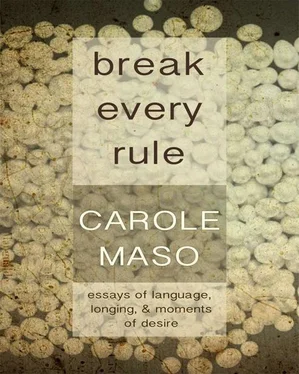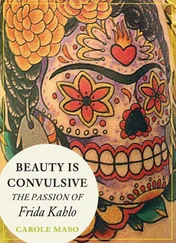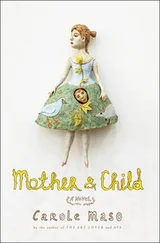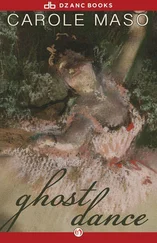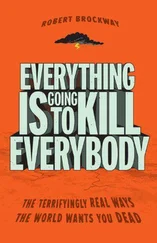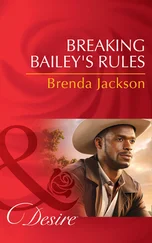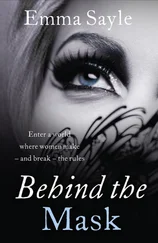It was written in a kind of waking dream, an erotic hallucination in which I was only semiconscious and yet utterly lucid. I abandoned myself to the pressure, the touch of language, its sexual slur, the trance of it. The motions of the alphabet. I have tried to be attentive to its needs — its positions and shifts, its murmurings. The word’s attraction for the word.
I write this now in Paris, city of light, in sweet breeze, in first heat, golden square devour me —after a winter so vast and white. Aureole was composed in a blizzard of emotion, in a blur of want, in an audacity of trust. I was knowing and un knowing, conscious and unconscious, freezing and fevered. Passion pressing these pieces into shapes like the press of animal tracks in the snow. The heat of the living body. The hope was for a language as ancient as memory, as direct as a moan, as gorgeous as song, as imperfect as utterance. It is in love with beauty and abandon and excess, unapologetically. The desire all winter was for transformation, transcendence. Now when I lift my dreaming head all of a sudden spring has come, golden square , and it is Paris; I marvel as the Seine turns into the Ganges, or the Hudson River, glistening, flowing through us on a white bed, on our pleasure river bed. The river being pulled through me like a miraculous, golden thread.
Aureole was shaped by desire’s magical and subversive qualities. It imposed its swellings, its ruptures, its erasures, its motions. Sometimes wild, sometimes elusive, playful, wayward — it was driven by pleasure and forged in passion. I have tried to feel the sexual intoxication of the line or the page or the narrative — language overcome or desperate or greedy. The story staggered. The phrase gasping or begging or sighing.
With some dismay I realize that I am content in these pages to be, as Yeats said, “for the song’s sake, a fool.” I have overexposed myself in this work. I have gone too far and also not far enough, I have wandered off hoping to get close to that translucent, ephemeral thing. That impossible thing. Escaping. And the white page whispered back, continues to whisper back, look, you’re no match for it .
Aureole resists categorization. My desire is far messier, more voracious, stranger than any existing or prescribed shape could accommodate. In fact I felt exiled, alien among those options. I could not recognize myself there. Desire pressing itself into odd shapes insistently, urgently, in a way I did not dare second-guess. The impulse in these pieces is to free myself from constraint, from preconception. The flight is from boundaries — linguistic, sexual, intellectual. The longing is for freedom.
Desire has made it possible for me to write into my greatest vulnerabilities, uncertainties. It has made it possible to not worry so much about the consequences, to let go a little. Desire has allowed me to write into its danger, its bliss, its silence, its abyss. To not care about failing. Whether these pieces were any “good” or not seemed hardly to enter it. I chose not to rely on facility. If I felt I was doing something I already knew how to do well, the rule was to start again in an attempt to break habitual patterns of mind and expression. I’ve tried to write into the heart of longing, regret, unsure once I was there how I would get back or if I’d get back. I have practiced courage a long time. I think of The Art Lover . Feigned it even when I did not have it, waiting for it to come. I’ve tried to write into reluctance — to actually feel the pull forward and back simultaneously, an erotic motion in itself. In this time of witness, of storytelling, I’ve tried to allow myself to walk into forgetfulness, dissolution. To give up a little. To let the earth go, and the ones I love most. To let a new logic take over. To live at the heart of the unknown, without explanation. Desire has allowed me to stray, to wander away from the familiar, to move far off into the landscape of passion or addiction — oblivion — snow or hope — the trance of our days here…
Language for me has always been a profoundly sensual experience. Language is emotion, language is feeling, language is body. It is not merely the sign for something, but rather also a thing in itself. It has weight and heat; it emits light. Its meaning is inseparable from its sound, its rhythms, the way it is arranged on the page. It is primitive, charmed, charged, affective. Only secondarily is it conceptual and derivative. From a different angle, and through a different process, the philosopher Maurice Merleau-Ponty knew this thing, and I would recommend anyone who cares about such matters to read his amazing Phenomenolgy of Perception . I myself have arrived at such convictions through years of devotion to its untapped capacities for expressiveness, its recalcitrance, its elusiveness. I believe like Maurice Blanchot that “language is possible because it strives for the impossible.” And “the poet is nothing but the existence of this impossibility, just as the poem is nothing but the retention, the transmission of its own impossibility.” There is a way of conveying meaning beneath the level of the meaning of the words themselves, and this for me is where the true capacities and powers and charms and seductions of language reside. Language works on one in some of the same ways music does. It shapes silence. Through an arrangement of tones and rhythms, against a shimmering backdrop of silence, music can produce subliminal, physiological, psychological, emotional, and sometimes mystical responses. The effect of key, the press of syllable, the modulation of tone, the vowel’s drawl, the rhythm of hip and word and world, the flick of the tongue, or the heat of the hand can create sublime and profound states. I am hoping in a series of books like this one to explore the erotic through the thoroughly incarnate medium of language. I am hoping to get closer to my own desire. I am imagining free. Free some day.
In this preliminary work desire has informed and shaped diction and syntax. It has shown me how to determine the line, the paragraph. It has intimately influenced not only the trajectory of the narrative but its very definition. Desire insisted at times on a kind of formlessness, indeterminacy, excess. A series of intensities without objective. Plans are abandoned, resolutions are broken, preconceptions fall away. Desire does not follow but rather distorts and warps the usual unities and coherencies, and some of the stabilized notions of self and other. I have let it determine my notion of “character” and the treatment of time. It is responsible for the various swellings and verges and delays and elongations and collapses — it has brought a certain wildness, vibrancy, immediacy I have found somewhat lacking in my work. Aureole begins, but only begins, to explore writing as another kind of lovemaking, and love-making as another kind of writing.
Line by line I have tried to get closer to an erotic language, a language that might function more bodily, more physically, more passionately. Enjambment, flux, fragmentation, the elision of the object, the detached clause, the use of arpeggios, a changing dynamics, dangling participles, various aphasias — the unfinished sentence, or the melting of one sentence into another, the melting of corporeal boundaries, the dissolving of a subjective cohesion — these are some of the strategies I have attempted here. For the most part they were done intuitively as I tried to surrender and enter a sexual reverie on the level of language. Blurrings, changes in focus, and contradictions abounded. The oxymoronic, the parabolic appeared, serving as — well, who knew? — perhaps as fortification against the dissolution, or a warning, of what might happen if one strayed too far from story. I have tried to explore a little the zones of speechlessness one sometimes enters during sex, the field of silence, the tug of it, the language voids and vacuums, the weird filling in with words. This called up Stein for me and her particular brand of playfulness — her baby talk, her repetitions, her abstractions, her songs. Her sense, her senselessness. The small codes, hopes, love letters she embedded in her texts.
Читать дальше
